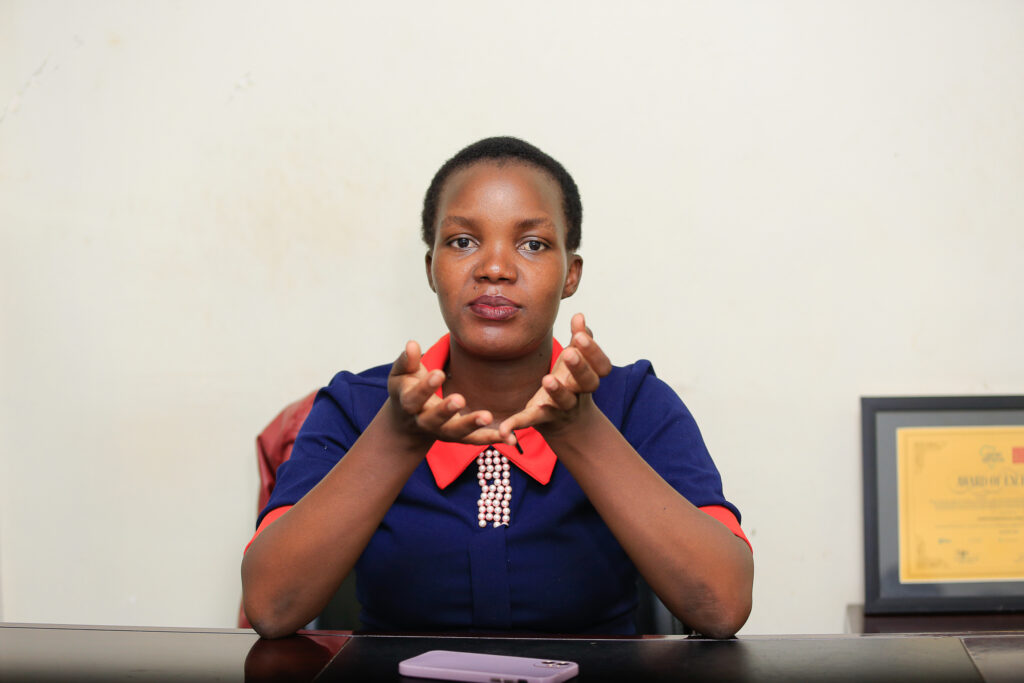Market access is one of the biggest challenges for businesses in Uganda, especially in the informal sector. Many highly depend on word-of-mouth references because they lack resources for proper marketing.
Some fail to breakeven and close shop while others stagnate at a small-scale level. It is estimated that Uganda has more than 2.5 million formal and informal businesses suffering with limited market as well as physical visibility.
Of these, 1.8 million informal businesses are run by women, youths and refugees. The majority of these cannot afford good premises and/or online visibility.
Back in 2020, Osman Salim Mwebaze, a founder of KLA Garden Spices that is available on the Merchandise Uganda platform found himself in this state of affairs. He would wake up every morning, open his premises in Kawempe-Lugoba and pray to God for customers for his products including spices for tea and food like chicken masala, pilawo masala, Tangawizi, black pepper, among others.
Business was dim. Profits were hard to come by. Hope was lost – until he was told about Merchandise Uganda, an online m arketplace.
“About three years ago, a colleague told me about Merchandise Uganda where we could advertise our products using the phone,” he says.
“Ever since I joined this platform, business has changed. Previously, it would be hard to find market but now I also get an opportunity to interact with other producers or manufacturers and buyers,” he adds.
What is Merchandise Uganda?
Merchandise Uganda is a free online marketplace where sellers and buyers meet and transact. When you have a business or products to sell, you just visit the Merchandise Uganda platform and open a shop. A seller/trader is required to provide some KYC in form of trader name or business name, location, contact details, good photos of products and videos of how the products work (if need be).
When someone wants a product, they go to the website or download the Merchandise Uganda App and search for the product they want. Then people with such a product will be listed and the client can contact them directly.
They also have partnerships with delivery companies. All suppliers are assigned to these logistics companies. So, when the client makes an order, the delivery company is notified to pick the product and deliver it
According to Suzan Awori, the Business Administrator at Merchandise Uganda, since they opened shop in 2019, they have on-boarded more than 1,300 clients and created more than 100 direct and indirect jobs in 2021 alone.
“We have also trained more than 10,000 businesses on how to use digital marketing tools as well as women in local markets,” she says.
And traders are counting dividends. Mwebaze, for instance, says that since joining this platform, his weekly client traffic has jumped from five (5) to more than 20.
“There have been more orders coming in and it’s a tremendous platform,” he says. Mwebaze retained his physical shop along with his online shop.
He however advises the operators of this platform to improve the online payment system.
“There needs to be a mechanism where a client clicks on the product and payment is done promptly. Here, the supplier will be sorted and needs to make the product available for the client,” he says.
Awori says this is part of the plan, but it starts with building trust.
“Currently, we don’t handle digital payment but we have it in our future plan. We also encourage clients to do online payments as it saves time and is more secure. But, the main challenge here remains the trust between the buyers and sellers as many people are not comfortable to pay for something that has not reached their doorstep.”
Nonetheless, Mwebaze calls on Ugandan traders from all sectors to use such platforms to expand their market reach.
40 Days 40 FinTechs
Merchandise Uganda are participating in the 40 Days 40 FinTechs for the third time and Awori is aware of this initiative’s impact to their business growth.
“In 2022, we participated in the 40 Days 40 FinTechs initiative organized by HiPipo where we were awarded. We also on boarded more than 800 clients in that year,” she says.
According to HiPipo CEO Innocent Kawooya, Merchandise Uganda is one of the success stories that have shown the world the importance of online marketing.
“During the Covid-19 pandemic, we all realised that you can get all supplies by the press of a button. Platforms such as Merchandise Uganda are an example of a marketplace on your phone,” he said.
Kawooya noted that Season Four of 40 Days 40 FinTechs intends to highlight these achievements by innovative minds across the East African region geared towards serving the people at the bottom of the pyramid.
This initiative is run by HiPipo in partnership with the Level One Project, Mojaloop Foundation, INFITX, Cyberplc Academy, and Crosslake Technologies with support from the Bill and Melinda Gates Foundation. Life-changing stories from more than 100 FinTechs have been highlighted by this initiative in the past three years.

